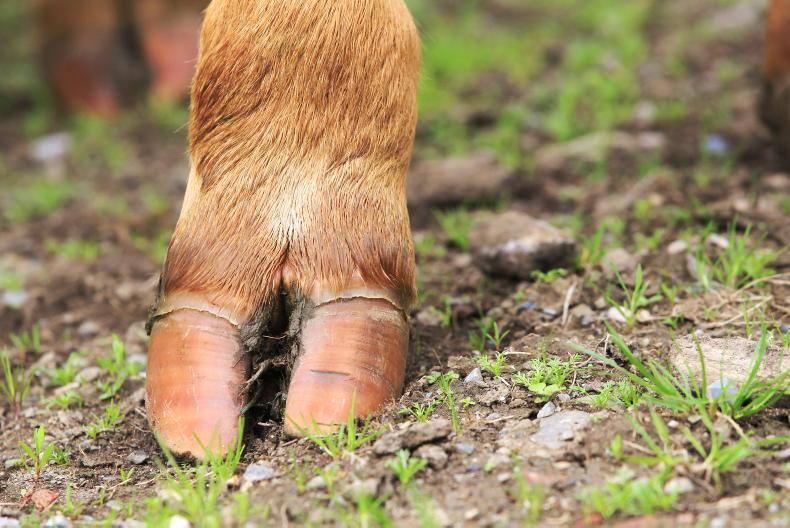The leaked draft of CAP 2020 proposals received by the Irish Farmers Journal this week will undoubtedly be changed by negotiations over the coming months. However, it is likely that the basic framework will remain and it will be the details in the margins that will get attention. Here are the main points that farmers need to know.
Made in Dublin, not Brussels
This is one of the side effects of the Brexit vote in the UK. As well as the EU feeling it hasn’t explained itself well enough, it has also become fed up with acting as a lightning rod for national governments who find Brussels easy to blame for unpopular decisions.
CAP 2020 sets out to reverse this by inviting member states to submit their individual CAP strategic plans to Brussels for building a national model that will deliver the CAP objectives. There is also flexibility for countries to apply some or all of the CAP at a regional level.
Therefore, the Minister of Agriculture will play a much greater role in shaping the next CAP than previously.
Upper limit of €60,000
One of the big complaints about the current CAP is the fact that 80% of the money goes to 20% of the claimants. While this reflects land ownership and output, it has been a target of the Commissioner among many others since the beginning of the consultations on the 2020 CAP for over a year now. At present, member states have a discretion on an upper limit for payments. Next time round it looks like there will be an upper limit as part of the overall CAP policy though with the strong national input in putting the delivery in place, there may be some national discretion. Also, while the number in the draft seen by the Irish Farmers Journal is €60,000, it could well be revised in subsequent drafts.
’Active’ farmer to become ‘genuine’ farmer
With the definition to be decided in each individual country using EU guidelines, this is the one that has potential for controversy. According to the draft CAP framework document, no income support is to be given to “those whose agricultural activity is an insignificant part of their overall economic activities” or “whose principal business activity is not agricultural”.
It will be left to member countries to decide which farmers are not considered genuine farmers, with income tests and labour inputs on the farm suggested as criteria. Where this leaves small, part-time farmers with an enterprise that returns a small profit, if indeed any, and have substantial off-farm employment that provides their core income, remains to be seen.
Any criteria introduced, however, is likely to reflect the structure of Irish suckler and sheep farms where herd and flock size is small.
Redistribution to small and medium farmers, young farmers
A long-running objective of the Commissioner for Agriculture, alongside putting an upper limit on payments and attracting new blood into farming. Member states will be required to provide for redistributive support in their CAP strategic plans for getting money redistributed from larger farms to smaller farms. Brussels won’t be deciding how this is done beyond providing the basic ground rules, the detail will be left for member countries to work out.
The proposals put the age limit for a young farmer at 40 and member states are required to build a fund for the support of new entrants to farming.
New jargon
Just as Single Farm Payment (SFP) gave way to the Basic Payment Scheme (BPS) in the current CAP, the new decoupled direct payment will be known as the Basic Income Support for Sustainability (BISS). In addition, there will be a Complementary Redistributive Income Support For Sustainability (CRISS) and a Complementary Income Support for Young Farmers (CIS-YF). Additionally, a voluntary scheme for the climate and environment is also proposed (Eco Scheme)
On coupled payments, provision is made for a Coupled Income Support (CIS) which may be up to 10% of the national envelope. In Ireland’s case, this would mean that up to €170m could be used for coupled payments should the Government decide to do so in its plan for the delivery of the CAP. There is scope for another 3% coupling for protein crops
Environment
The much-criticised greening element of the current CAP is to be replaced, with cross-compliance and green direct payments to be scrapped. The draft proposals suggest provision for voluntary schemes for climate and the environment Eco Scheme, available to “genuine” farmers. This would mean going beyond the legal requirements on use of fertilisers etc. Irish farmers would likely oppose the hiving off of the Greening payment (30% of the BPS) to fund this scheme
Risk management tools
This is a basket of proposed measures that includes provision for member countries to provide farmers with risk management tools. These are intended to manage both production and market risks which are outside farmers control. This could include a contribution to insurance schemes and mutual funds with an upper limit of contribution set at 70%.
This provision would also include training and knowledge transfer through a farm advisory service.
It should be remembered that this is the first (leaked) draft of proposals that will be widely debated across member states and the EU institutions. They are a basic framework that is likely to evolve but the central themes going back to the Commissioner’s communication from last November are likely to remain.
The biggest influence of all on how CAP 2020 will deliver for farmers will be the amount of money that is available in the budget to be revealed next Wednesday.
Healy to Hogan: fight like hell
IFA president Joe Healy put his finger on the big issue when he said the Commissioner for Agriculture and indeed the Government had to “fight like hell” for an increase in the CAP budget, not a reduction as floated by the Budget Commissioner.
Also commenting on the leaked proposals, Joe Healy is positive about direct payments going to farmers based on objective criteria around agricultural production, farmer’s contribution to the economy, labour input and provision of public goods. He also reminded the Commissioner of his political commitment on simplification which he said “must be to the forefront of the new CAP”.









SHARING OPTIONS